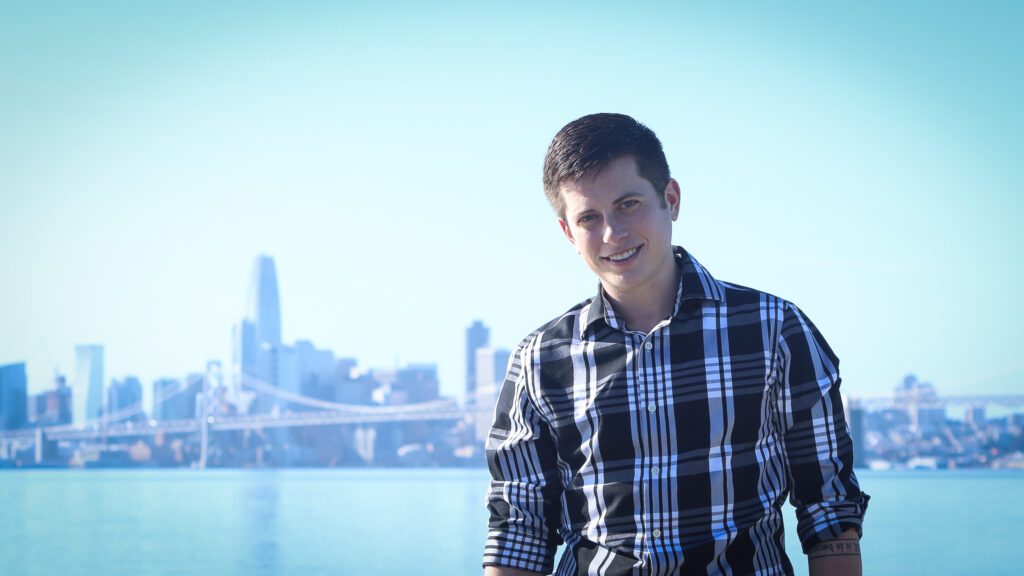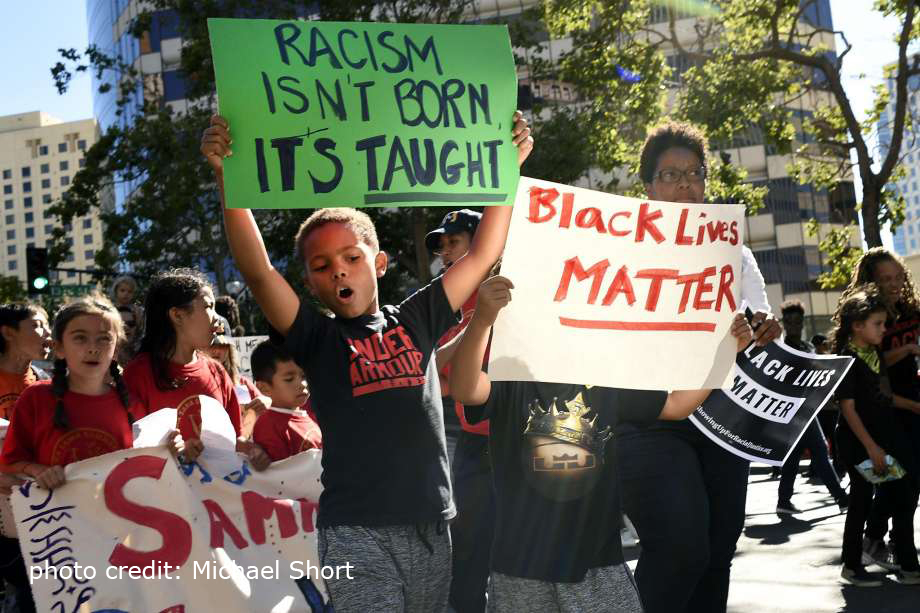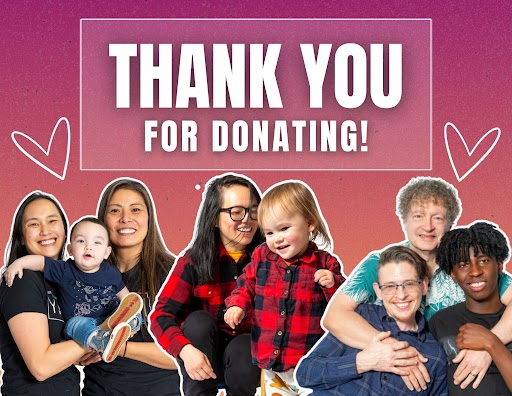Dear friend,
Black lives matter.

In these last weeks, as the murders of Breonna Taylor, Ahmaud Arbery, George Floyd, Tony McDade, and David McAtee have stacked brutal headlines one on top of another, we have seen a country in a state of deep grief and justified anger. We’ve seen a wave of police violence against students, protestors, and journalists. We’ve seen calls for decorum in the face of death.
At Our Family Coalition, we know we are part of a long history and a long fight. While the LGBTQ movement and the movement for Black lives intersect, the struggles are not the same. But as we enter the second week of protest and the first week of June, it’s critical to remember that the LGBTQ history OFC’s Inclusive Schools Program teaches our youth is a history of resistance.
We can’t celebrate Pride this month without recognizing a riot as a legitimate expression of anger and mechanism of social change. We can’t celebrate Pride this month without reaping the fruits of Black, brown, and trans organizers who – yes – threw rocks at the police and destroyed squad cars. We can’t celebrate Pride this month without raging at the very notion that property destruction is a greater threat to our communities than state-sanctioned murder.
The same arguments we’re having about the ways we make change today were happening around the Stonewall Uprising, Compton’s Cafeteria, the White Night Riots, and the response to the AIDS crisis. Every single one of the tactics we’re seeing today has had a place in the history of our movement, just like they’ve all had a place in the movement for Black lives.
Throughout the history of social movements, ours included, there have been a multiplicity of strategies for social change. Violence exists and has existed. If we’re going to be thinking about violence, we must start with the highest risk and greatest damage – which is to say the kind that has the power behind it to give widespread reach and virtual impunity. Taking a life is violence. Taking four lives is violence. Taking a hundred thousand lives in a few months is violence. Taking millions of lives for hundreds of years is violence.
Growing up Black in America is an experience of violence. It’s impossible to fight for LGBTQ youth without fighting for Black youth. One of the policy issues OFC advocates on is the disproportionate impact the school-to-prison pipeline has on LGBTQ students. They’re not alone. By preschool, Black children are being overdisciplined at a rate of 3-4 times white children. By middle school, Black preteens are already being stopped and frisked. By young adulthood, police are the sixth leading cause of death for Black men. It is impossible to fight for racial justice without fighting against state violence.
Some of us sit in courtrooms and some sit in intersections, some run congressional committees and some run support groups, some answer the crisis lines and some answer the call to ministry, some line up in front of voting precincts and some line up in front of riot police, some feed our people and some treat our people, some write and some speak and some sing, and some get through the day so they can do something else tomorrow.
The fight for justice isn’t comfortable because injustice is fatal. Violence isn’t about property; it’s about power. The people leading the way through the streets tonight know they may not make it home. If they do, they know they will be at even greater risk from a virus tearing through our communities – a virus that has surgically exposed and exploited every crack in the equality of this country. Their decision that justice is worth placing their lives in danger is one of courage and conviction.
We remain steadfast in our commitment to lift up the voices and support the decisions of those most directly impacted by white supremacy. To our white family, it is past time to do better. To our Black and brown family, you have our unequivocal support. To our warriors in the streets, we are with you.
Black lives matter.
In solidarity,

Sam Ames, Esq., JD, MTS
Interim Executive Director


